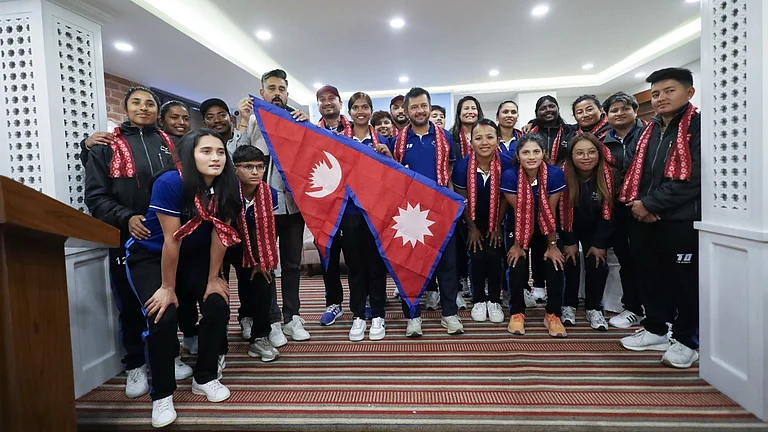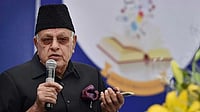Making a documentary is an art that requires passion, but, when one sets out to make a docu-series on one of the most controversial Godmen and portray their crimes, it automatically becomes a daunting task that requires dedication, commitment, and sheer will.
Filmmaker-journalist Naman Saraiya, who has created the recently released docu-series 'My Daughter Joined a Cult' based on self-proclaimed godman Nithyananda can corroborate the above fact. The director recently spoke with IANS about treading the tricky road with his creation, how being a journalist influences the filmmaker in him, and his views on the tussle between faith and rationale.
Suraiya was naturally drawn to Nithyananda, who is accused of alleged sexual crimes and laying the foundation of the theocratic nation of Kailasa. The filmmaker tells IANS, "The story came naturally, especially given the world we are living in and the online persona Nithyananda had created for himself. So much material, especially from his recent past, was accessible online. Also, finding survivors and ex-devotees looking to voice their stories, and trust us with it made it much easier."
"I was happy to be brought on board by the team at VICE Studios, India, and Discovery+ who had been in conversation for a little bit, on a concept level. The reports of Janardhan Sharma and his family's plight was all over the news towards the end of 2019 and helped dive deeper into the long, arduous trail of the alleged crimes of Nithyananda. It became an easy entry point," he adds.
Ask him how the journalist in him comes to the rescue of a storyteller in him and he says, "It truly does cross over! In an ever-changing media landscape, especially with documentaries in the last decade or so, integrity is the most important." He further mentions, "Staying true to the stories of survivors, verifying one's sources, and most importantly, using available court records and police charge sheets to frame the story was key - and we've aimed to do just that with this docu-series! Getting to amalgamate my journalism and filmmaking aspirations, while challenging, has been truly rewarding."
Making a documentary requires mind-boggling levels of patience and to emotionally be a little far from the subject matter, in the words of one of India's most successful filmmakers - Kabir Khan. How did Saraiya emotionally disconnect himself and be "a fly on the wall"?
He responds: "Cognitive dissonance with subjects such as these isn't easy, but of utmost importance, in my opinion. I think not losing sight of the bigger picture while focusing on the intricacies... and finding that balance is incredibly important. With a great team backing me - especially the producers, researchers and assistant directors, and editors - this became easy to do. Perhaps sharing the heaviness of the subject material with a compassionate, sensitive, and keen group of collaborators made it easier than it otherwise would have been."
And lastly, he shares his opinion on the debate of faith vs rationale. "Through our journey of making this docuseries, we came across the most rational people who did not question certain aspects of Nithyananda's actions during their time in the cult. Obviously, we are not here to judge or question anyone's faith, but throw light on the wrongdoings laid bare for everyone to see," the filmmaker concludes.
'My Daughter Joined a Cult' is available to stream on OTT platform Discovery+.
[With Inputs from IANS]


























